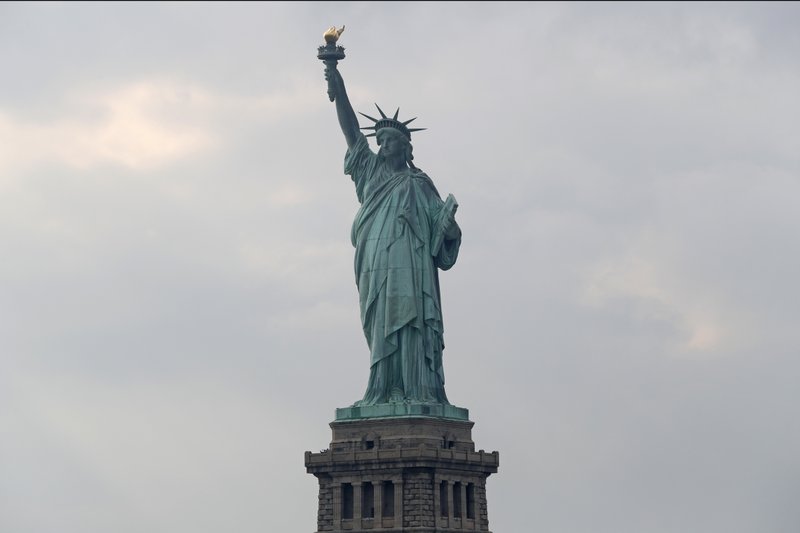WASHINGTON -- New York residents will be cut off from "trusted traveler" programs that speed their reentry into the country, a senior Homeland Security official said Thursday, blaming a new state law that prohibits immigration agents from accessing motor vehicle records.
Tens of thousands of New Yorkers will face slower reentry because of a law that acting Department of Homeland Security Secretary Ken Cuccinelli says puts public safety at risk by preventing federal agents from quickly accessing vehicle and criminal records.
"I know other states are looking at laws like this," Cuccinelli said. "We would urge them to reconsider."
The decision freezes New Yorkers' access to Global Entry and three other programs, which the New York governor dismissed as "extortion."
Global Entry and the three other traveler programs enable people to enter the U.S. without having to pass through the standard immigration and customs checkpoints.
New York's "Green Light" law, which went into effect in December, allows people to get a driver's license even if they don't have legal residency in the United States. It includes a provision prohibiting the Department of Motor Vehicles from providing any data to entities that enforce immigration law unless a judge orders it to do so.
The Homeland Security action also applies to nearly 30,000 commercial truck drivers who cross at four U.S.-Canada ports of entry in upstate New York.
Cuccinelli told reporters on a conference call that New York's Green Light law endangers the public and federal agents, who can't quickly confirm someone's identification, check for fugitive warrants or see if a person has a criminal record.
"Obviously, we would urge New York to undo that law and restore some sanity to its own attempts to help preserve public safety," he said.
New York state officials and other administration critics dismissed the Homeland Security action as a political stunt, noting the trusted traveler programs don't require a driver's license. Participants must submit a passport, fingerprints and undergo background checks, allowing them streamlined return to the U.S.
New York Gov. Andrew Cuomo defended the Green Light law, saying it improved public safety by ensuring drivers have licenses regardless of their immigration status. The state barred immigration agents from accessing the records to prevent the government from using the records to deport people in the country without legal residency.
Sen. Kirsten Gillibrand, a New York Democrat, called the action "political retribution" by the federal government. "There is no factual basis for this policy," she said. "Its true design is to punish New York for embracing diversity and inclusion."
The Global Entry and other trusted traveler permits must be renewed every five years. Cuccinelli said about 175,000 New York residents in trusted traveler programs will be kicked out over the course of 2020 as their permits expire.
At the U.S. Customs House in lower Manhattan, where there is an office in which Global Entry interviews are held, a federal employee was turning away people Thursday if they were New York residents.
Cuccinelli said Homeland Security is considering additional penalties against New York and evaluating the progress of a similar proposal in Washington state. "They should know that their citizens are going to lose the convenience of entering these trusted traveler programs just as New York's did," he said.
Information for this article was contributed by Ryan Tarinelli, Deepti Hajela and Colleen Long of The Associated Press.
A Section on 02/07/2020
